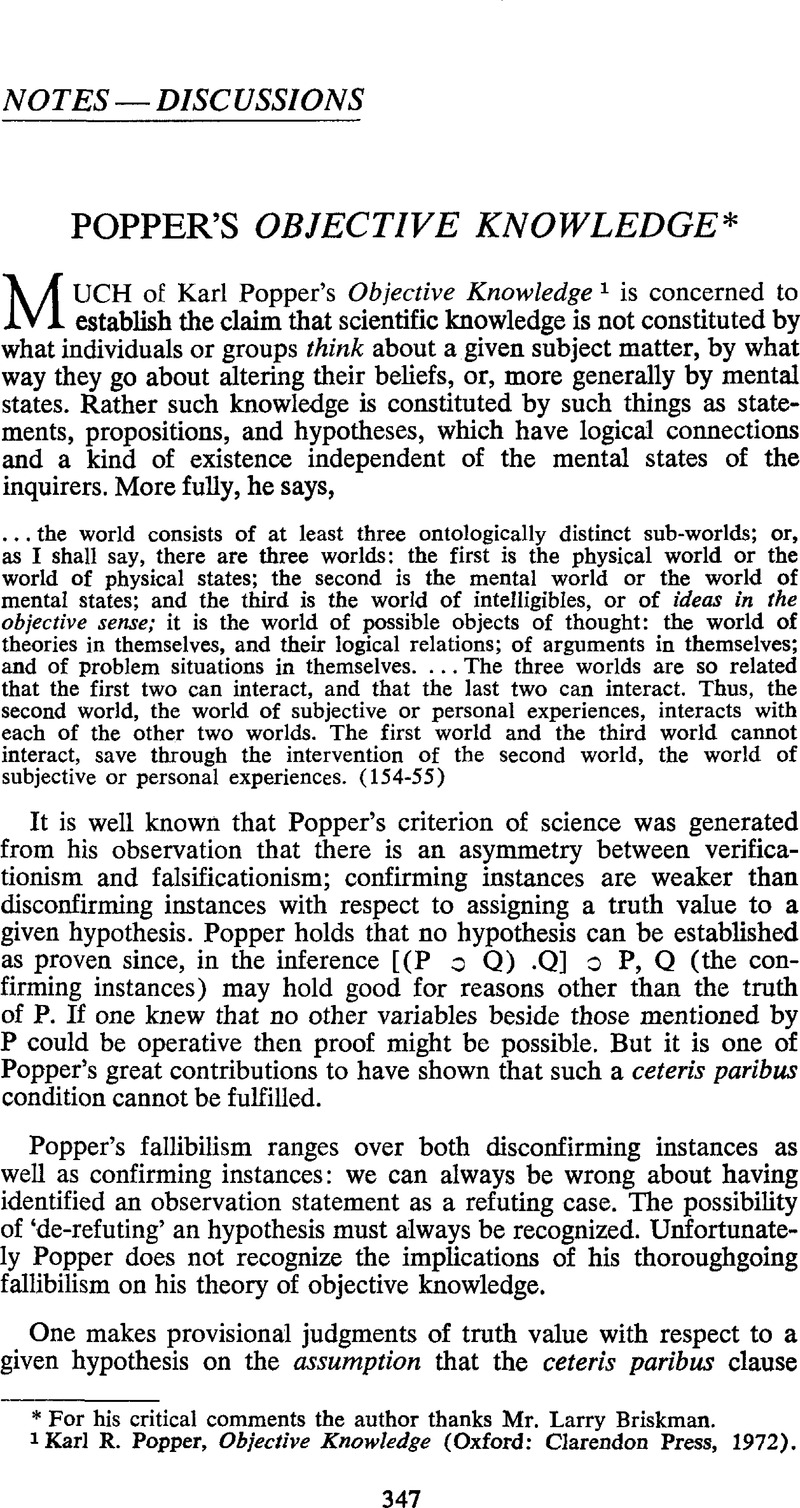No CrossRef data available.
Published online by Cambridge University Press: 09 June 2010

1 Popper, Karl R., Objective Knowledge (Oxford: Clarendon Press, 1972).Google Scholar
2 Positivist philosophies of science suffer from this mistake. Two important departures from this attitude are T. S. Kuhn's, The Structure of Scientific Revolutions and Stephen Toulmin's Human Understanding.
3 In this regard see A. O. Lovejoy's discussion of simplicity in The Great Chain of Being, and R. G. Collingwood's The Idea of History (“Epilegomena”).
4 Difference in the apprehensive mode and critical mode is noted by artists and educators of art when speaking of “switching gears” between the two (e.g. Constance Costigan Christian of the Smithsonian Associates.) An interesting phenomenological account of this switch remains to the offered.